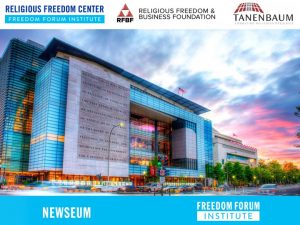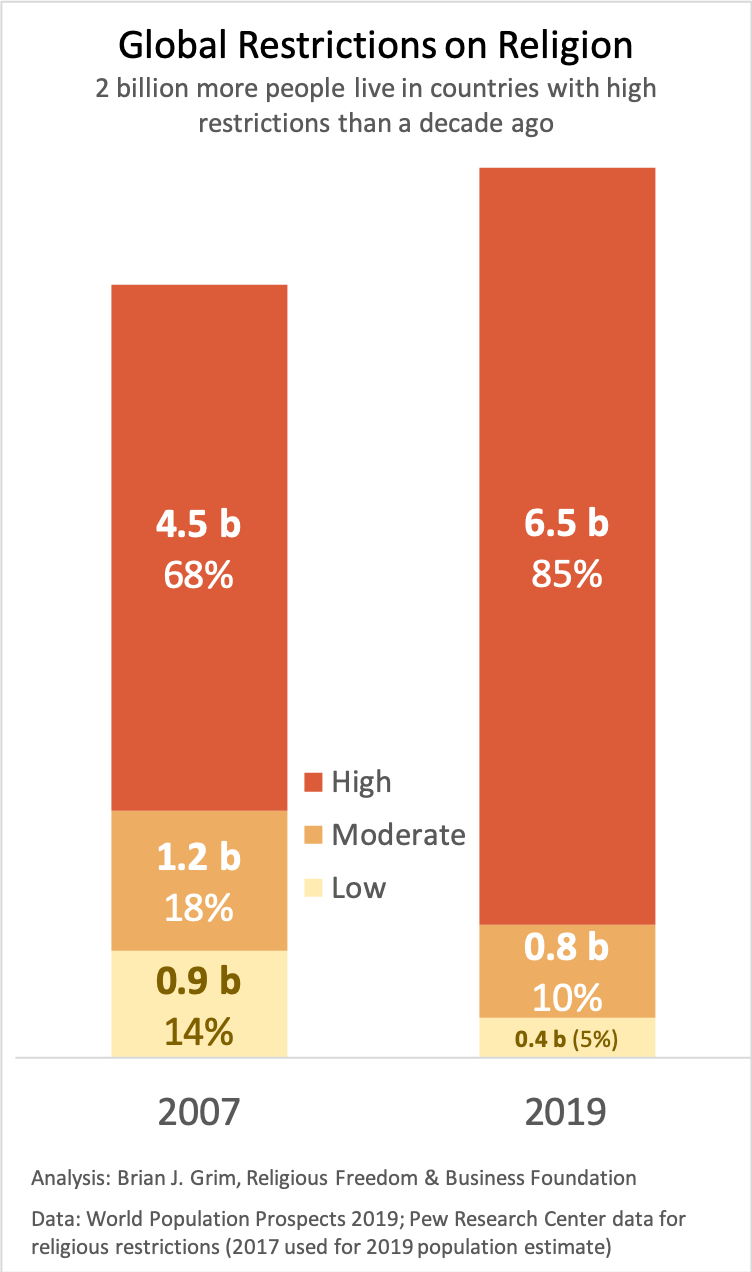 IMMEDIATE RELEASE, July 15, 2019, Washington, DC: Two billion more people live in countries with high restrictions on religious freedom than did so just a decade ago, according to an analysis by the Religious Freedom & Business Foundation (RFBF) of a report released today by the Pew Research Center.* The dramatic decline in religious freedom impacts not only peace and stability but also slows global economic growth, according to RFBF.
IMMEDIATE RELEASE, July 15, 2019, Washington, DC: Two billion more people live in countries with high restrictions on religious freedom than did so just a decade ago, according to an analysis by the Religious Freedom & Business Foundation (RFBF) of a report released today by the Pew Research Center.* The dramatic decline in religious freedom impacts not only peace and stability but also slows global economic growth, according to RFBF.
by Brian J. Grim PhD, Religious Freedom & Business Foundation contact@religiousfreedomandbusiness.org
Restrictions on religious freedom can come from two main sources: governments and groups in society (Grim and Finke, 2007).
The just-released Pew Research study finds that governments in 52 of the 198 countries and territories analyzed in 2017 had high or very high restrictions on religion, up from 40 in 2007. At the same time, an even larger number of countries — 56 — had high or very high social hostilities involving religion coming from groups within societies, up from 39 in 2007.
RFBF’s analysis of Pew’s study finds that 83 countries today have high or very high levels of government restrictions and/or social hostilities, but because some of these countries are very populous, such as China and India, 6.5 billion people — or 85% of the world’s 2019 population of 7.7 billion — live today in countries with high restrictions on religious freedom. This is 2 million more people than in 2007, when 4.5 billion people lived in countries with this same level of restrictions. (Note: Population figures estimated by RFBF; Pew did not provide population figures).
This is a dramatic increase in both the number of countries and the share of the world’s population living in countries with high restrictions on religious freedom. In fact, the spread of religious restrictions and hostilities is outpacing population growth 2-to-1. Between 2007 and 2017, the world population increased by about a billion people, which is half the increase in the number of people living with high or very high religious restrictions.
Economic Impact
The global increase in restrictions on religious freedom between 2007-2017 has economic implications. In particular, since the recovery from the 2008 financial crisis, RFBF finds that GDP growth rates in populous countries where religious restrictions and hostilities decreased grew at about double the rate as in countries where religious restrictions and hostilities substantially increased, as shown in the table below.
These new findings echo those of a 2014 study by researchers at Georgetown University and Brigham Young University who found that religious freedom is one of only three factors significantly associated with global economic growth, controlling for two-dozen different financial, social, and regulatory influences.
“Economies of populous countries where religious restrictions and hostilities decreased grew at double the rate as economies where religious restrictions and hostilities substantially increased.”
For country comparability, RFBF’s new analysis looks only at the 57 economies of countries with populations greater than 20 million people, which accounts for most of the world’s GDP. We divide these 57 countries into thirds according to the amount of change in religious restrictions between 2007 and 2017, as reported in the new Pew study.
GDP growth in the 19 countries that reduced or had very low increases in their overall religious restrictions and hostilities averaged 5.1% per year between 2009-18. It is notable that several of the countries in this category had high religious restrictions and hostilities, but even modest decreases in these were associated with economic dividends.
Conversely, countries with significant increases in religious restrictions and/or hostilities averaged 2.6% annual GDP growth. The United States, the world’s largest economy, is among this group of countries, with a significant increase in social hostilities involving religion. Religious hostilities in the U.S. range from the 2017 deadly anti-Semitic and racist demonstrations in the Virginia city of Charlottesville, to workplace religious discrimination witnessed or experience by 36% of the American workforce, impacting some 50 million people across all faiths, beliefs and denominations — including religious majorities and minorities. Given that the history of religious freedom in the U.S. has created an economy where religion contributes nearly $1.2 trillion in goods and services annually to the U.S. economy, addressing religious freedom challenges in the U.S. is not just a cultural or political issue, but an economic imperative.
The People’s Republic of China, the world’s second largest economy, has seen a significant slowdown in its economic growth over the past decade coinciding with its multi-year national campaign to exercise strict control over religion. This includes not only a campaign to remove crosses from churches and control Christian expression, but authorities have put one million or more mostly Uyghur Muslims into re-education camps purportedly to stamp out the possibility of Islamic radicalization. Such moves threaten China’s economic success according to the 2015 study, The Modern Chinese Secret Sustainable Economic Growth: Religious Freedom & Diversity. Indeed, the active participation of religious minorities in society often boosts economic innovation, as shown by a study in the China Economic Review linking Christianity — adhered to by some 5% or more of China’s population — and the nation’s economic growth. In China during the Cultural Revolution of the 1960s and 70s, religion was completely outlawed. But China is now home to the world’s second-largest religious population after India, according to demographic estimates. Indeed, as argued in a World Economic Forum blog, The Link Between Economic and Religious Freedoms, “ensuring freedom for religious groups in China and elsewhere is a way to stimulate and sustain growth in the decades ahead. It’s something every country can benefit from.”
Religious Freedom, Peace and Sustainable Development
RFBF has looked at various ways religious freedom contributes to meeting the Sustainable Development Goals, including ending poverty (SDG 1), empowering women (SDG 5), and fostering peace (SDG 16). Indeed, a large portion of religious freedom’s instrumental contribution to sustainable development is its attachment to other bundled freedoms and rights as well as the peace dividend religious freedom provides (see The Price of Freedom Denied: Religious Persecution and Conflict in the 21st Century, Cambridge Univ., 2011).
*The Pew Research Center kindly granted Brian Grim advance access to their July 15, 2019, report, “A Closer Look at How Religious Restrictions Have Risen Over the Past Ten Years.” The advance access made this analysis possible. RFBF is deeply grateful to the Pew Research Center. Grim will join Pew Research staff and other experts on July 17th to discuss the report and its implication. Grim will also discuss the economic arguments for advancing religious freedom on July 17 at the Ministerial hosted by Secretary of State Mike Pompeo.
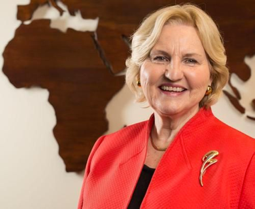 Rev. Dr. Jo Anne Lyon was the General Superintendent of The Wesleyan Church. She was also a member of the World Economic Forum’s Global Agenda Council on the Role of Religion.
Rev. Dr. Jo Anne Lyon was the General Superintendent of The Wesleyan Church. She was also a member of the World Economic Forum’s Global Agenda Council on the Role of Religion.
 Antje Jackelén, Archbishop of Sweden, together with Prof. Linda Woodhead (UK) and Brian Grim (US) – and input from the Global Agenda Council on the Role of Religion – looks at how faith interacts with each of the
Antje Jackelén, Archbishop of Sweden, together with Prof. Linda Woodhead (UK) and Brian Grim (US) – and input from the Global Agenda Council on the Role of Religion – looks at how faith interacts with each of the 




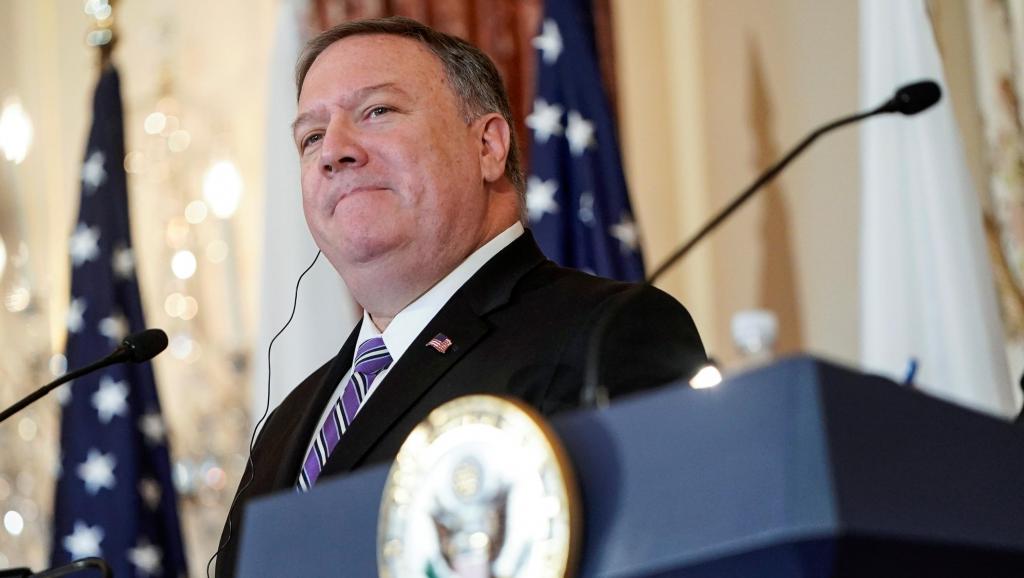
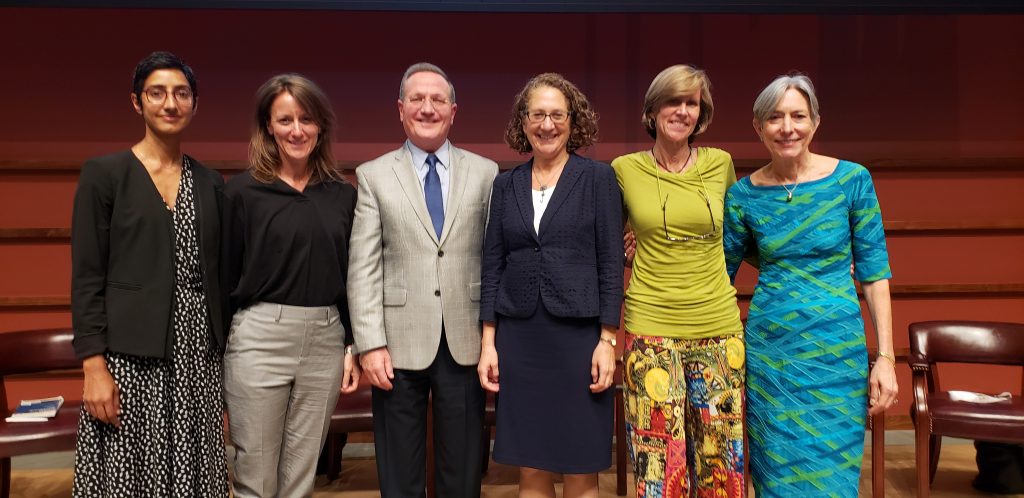





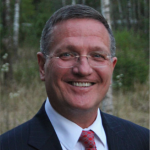
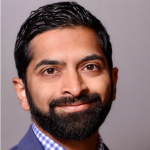
 Joyce S. Dubensky, Esq., Chief Executive Officer:
Joyce S. Dubensky, Esq., Chief Executive Officer: 